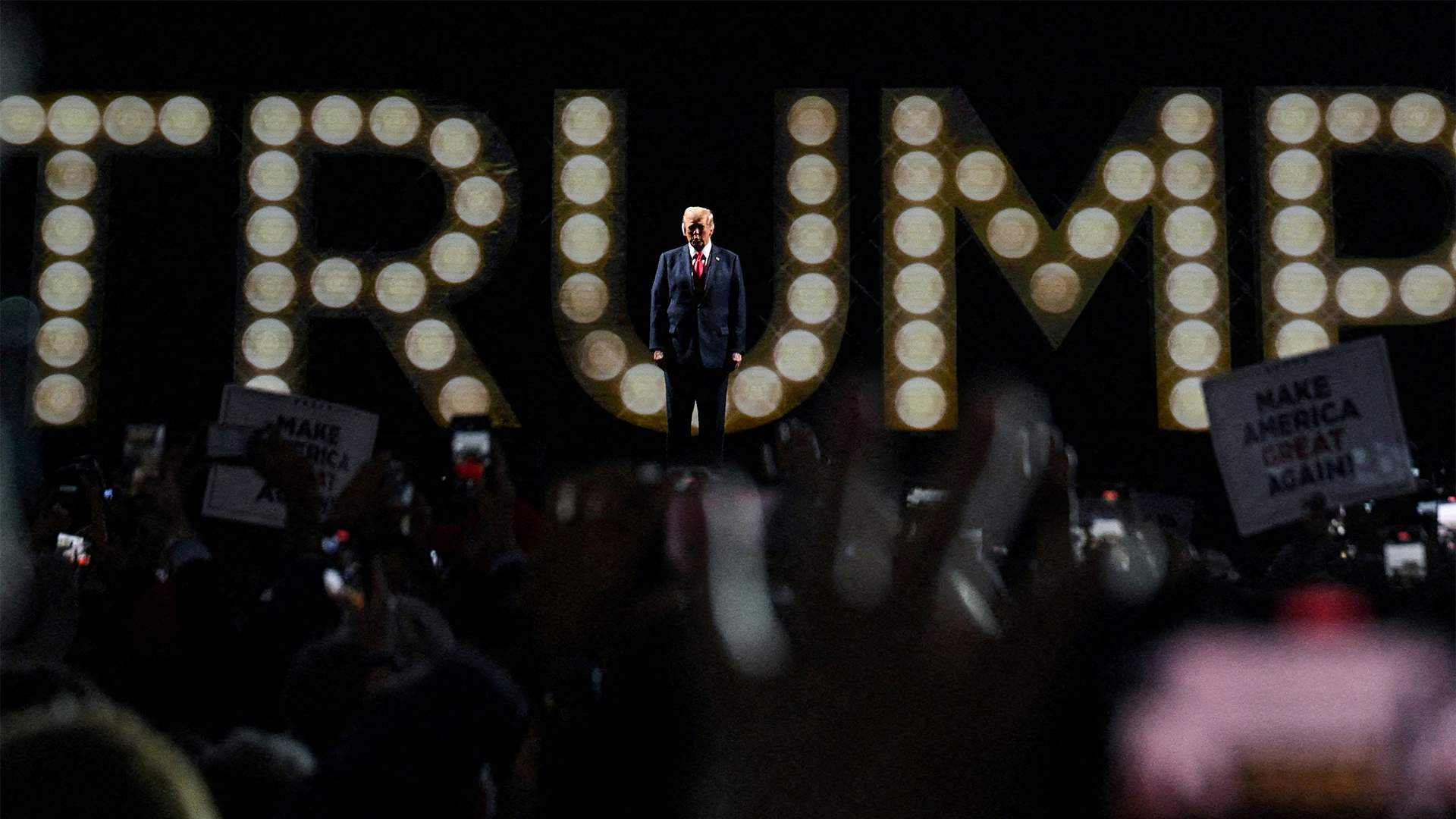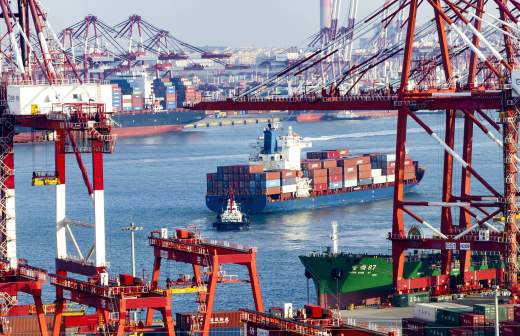Hit by tariffs: Trump's return will create problems for Asia

Asia will face a number of challenges upon Donald Trump's return to the White House. The US may impose duties on Chinese exports, which will eventually flood the Southeast Asian market and slow down the region's GDP. In addition, Washington could pull out of the Paris climate agreement again, which would be detrimental to its implementation. And in Southeast Asia, many countries are increasingly suffering from the effects of natural disasters amid global warming. The situation around Taiwan could also escalate. How dangerous the Republican's policy will be for the countries of the region - in the material of "Izvestia".
Economic risks
The world community is closely following the change of administration in the United States, expecting that upon his return to the White House, Donald Trump will have a significant impact on the course of the current conflicts. The future actions of countries on both sides of the ocean largely depend on the development of the situation primarily in Ukraine, as this conflict has in one way or another affected the political, economic and social interests of a large number of states. On the other hand, there is a region whose well-being is threatened by other factors also related to the Republican. With the arrival of Trump, Southeast Asia is at risk of facing a number of problems.
First and foremost, the region's economy could suffer. Trump, who unleashed a trade war with China during his first presidential term, apparently intends to continue it. Even before his inauguration, which will take place on January 20, he confirmed his intentions to impose virtually barrier tariffs on Chinese imports. Trump intends to impose a 10% duty on it, on top of any additional tariff. During the election campaign, he claimed that they would total a staggering 60%. The U.S. president-elect is taking such radical steps ostensibly to fight drug smuggling from China. Since 2000, more than 1 million people have died of overdoses in the country, and by the end of the decade hundreds of thousands more Americans are expected to die. At the same time, Trump does not hide his economic protectionism, so he is pursuing a tough tariff policy to weaken Chinese production and, as a result, revitalize American production. By the way, the Republican nominated billionaire and investor Howard Lutnick, a well-known "hawk" with regard to China, as the new U.S. Secretary of Commerce.
The danger for Southeast Asia is that China will then partially redirect its exports to the nearest and promising markets of Southeast Asia. Given the Chinese production capacity, cheap goods from China will literally flood the region, which is quite capable of reducing the GDP of Southeast Asia, said Kirill Kotkov, head of the Center for the Study of the Far East in St. Petersburg. In his opinion, this may affect the interests of Russian industrialists as well, given that China is Russia's "number one" trading partner. Thus, according to forecasts, Trump's tariffs could reduce regional growth by 0.5 percentage points in 2025.
In Thailand, more than 2,000 factories have already closed in 2024 due to the flow of Chinese steel. Indonesia's textile industry has cut tens of thousands of jobs in just six months. However, manufacturers from Southeast Asia have already begun to fight China's excessive industrial capacity. Thailand, for example, has recently introduced measures to control cheap imports, while Vietnam and Indonesia have imposed a series of anti-dumping duties on Chinese goods.
On the other hand, the protectionist policy of the United States may be a chance for Southeast Asian countries to attract American investment. They - primarily Vietnam, Malaysia and Thailand - are becoming the first recipients of funds that are being withdrawn from China, Dmitry Mosyakov, head of the Center for the Study of Southeast Asia, Australia and Oceania at the Institute of Oriental Studies of the Russian Academy of Sciences, told Izvestia. However, it will be very difficult to realize this.
- These countries still become part of the production chain, everything is made with the use of Chinese components. The economic power of China is very great, as well as the dependence of the United States on Chinese exports, primarily in terms of inflation," the expert emphasized.
Environmental risks
Another less obvious risk for SEA could be the environmental policy of Donald Trump, who has repeatedly called global warming a big hype. Under him, the US withdrew from the Paris climate agreement; under Joe Biden, however, it decided to return. At the recent SOR-29 summit in Azerbaijan, some 200 countries agreed to triple the amount of funds allocated per year to poor nations to fight climate change - from $100 billion to $300 billion. It is quite expected that the U.S. funding will stall. Moreover, if Washington withdraws from the agreement, according to the latest government estimates, greenhouse gas emissions will increase by 4 billion tons by 2030, and the damage from climate impacts will amount to over $900 billion.
The problem is that Asian countries have traditionally suffered flooding and other impacts from tropical cyclones, and in recent years especially. For example, floods in Pakistan in 2022 affected a third of the country's territory: according to various reports, about 2,000 residents died, and the total damage amounted to $30 billion. Hundreds died in India in 2021 under similar circumstances. Just a few months ago, more than 300 people died and went missing in a massive flood in Vietnam. Trump's potential moves could encourage opponents of tough climate change measures in these countries to pay less attention to the problem.
Of course, Trump's potential actions will not have an immediate impact on the eco-environment, but they may well cause long-term damage to cooperative efforts to curb global warming. Looking ahead, the U.S. could also withdraw from the 1992 UN framework convention that underpins all annual global climate negotiations.
Geopolitical risks
The Trump administration also has the potential to influence several regional, if not conflicts, at least explosive situations that could escalate to an international scale. All of them are related to China in one way or another. Interestingly, after the Republican won the election, Chinese President Xi Jinping sent a congratulatory telegram to his future vis-a-vis, in which he reminded him of the lessons of history: China and the United States benefit from cooperation and lose from confrontation.
The most sensitive issue in the region remains Taiwan. Beijing does not recognize the island's independence (like the vast majority of countries in the world) and considers it a breakaway province, so it opposes any form of official exchanges with Taiwan and is generally confident of future reunification. At the same time, Chinese officials do not rule out a forceful scenario, but only as a last resort. The U.S. government pays lip service to the principle of "one China", but periodically sends delegations to Taiwan at the level of third parties of the state, and also supplies it with arms under the aegis of democracy protection.
On the one hand, Trump's anti-China rhetoric hints at continued escalation around Taiwan. That is, the Republican administration's position will not be different from the Democratic one. At least in the US National Security Strategy, the PRC takes the place of the main strategic rival of the States.
- Trump, on the one hand, is an isolationist, but on the other hand, he will protect the strategic interests of the United States around the world. Taiwan locks mainland China's access to the open ocean, so the United States is unlikely to "surrender" the island," Kirill Kotkov points out.
At the same time, Trump, given his unpredictable approach, may depart from Washington's usual position on the island. In July, he once again said that Taiwan had captured "almost 100%" of the US semiconductor industry. The fact is, the island is home to Taiwan Semiconductor Manufacturing Co, the world's largest chip maker and a major supplier to Apple and Nvidia. Thus, the production of more than 90% of the world's most advanced chips is concentrated there.
Trump is not satisfied with the fact that the US is essentially acting as an "insurance company" for Taiwan, which in return "gives nothing". Against this background, the defense of the island turns into a bargaining item, which in the current realities gives rather shaky guarantees. By the way, Trump has already urged Taipei to pay more for American defense services.
In case of escalation, either China will realize a forceful scenario or the US will intervene, leading to clashes in the region. The closest countries to be affected are Southeast Asian states as well as Japan. By the way, they are actively expanding the network of bomb shelters there in anticipation of hostilities. The escalation in the South China Sea will also affect the SEA countries directly. China, the Philippines, Vietnam, Malaysia, Brunei, Indonesia, and Taiwan (which Beijing, it should be recalled, considers its own province) are disputing the islands in the South China Sea, whose shelf holds huge hydrocarbon reserves and through which $3 trillion worth of cargo is transported annually. So far, this has resulted in localized clashes between China and the Philippines. At the same time, behind Manila's back is the US, its longtime ally. Any provocation in the SCM can "boil the water" in this "cauldron".
However, according to Kirill Kotkov, Trump has no personal dislike for China, but he is worried about the American economy, so he will do everything in his power to correct the situation. In order to do so, he may go as far as aggravating the situation in the relevant regions, but no more than that.
- There is still some common interest at the heart of it. Perhaps Trump's policy will be different. It is one thing to declare when you are on your way to power, and another thing to make some responsible decisions when you are already in power. I don't think anything serious and significant will happen in US-China relations. There will be a long bargaining, there will be mutual accusations, there will be compromises," emphasizes Dmitry Mosyakov.
At least, experts agree that neither side is going to bring the matter to real military clashes.
Переведено сервисом «Яндекс Переводчик»









